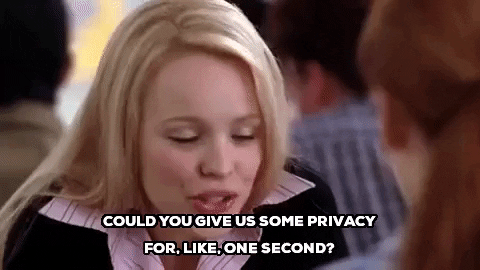January 24-28th is Data Privacy Week! Given the ever evolving state of data privacy, this is a great opportunity to discuss how we can protect ourselves against data breaches and identity theft. Originally, this tradition started as a day observed on January 28th as a result of a European Council meeting on the subject in 1981. This was “an educational initiative focused on raising awareness among businesses as well as users about the importance of protecting the privacy of their personal information online, particularly in the context of social networking.” (Wikipedia)
Clearly the people who started this initiative made an extremely accurate prediction: The breadth and usage of the internet would expand rapidly and data privacy laws would fail to keep up with the times. While there have certainly been some recent advancements in data privacy laws such as GDPR it remains true that we have a long way to go before we, as a society, can consider our personal data adequately legally protected.
As users of internet services, we are all victims of the mishandling of our own personal data. We can see this mishandling in so many ways:
- Data breaches as a result of malware leading to massive swaths of personal info such as credit card and social security numbers being stolen and sold by bad actors
- Ransomware attacks that have now also turned to data extortion - threatening to leak confidential data and risk damage to company reputation, for a price. This is one of the more recent and nasty developments in the Infosec space.
- Terms of service agreements (which most of us fail to read) allowing companies to sell our data, usually to marketing agencies, so that those agencies can target us for personalized ads
- Identity theft as a result of our data being stolen or improperly handled by the many companies that have access to it
While we as individuals cannot (directly) change data privacy laws, we can certainly change our behaviors to mitigate vulnerability to any data disasters as listed above.
Considering privacy vs. convenience
Many apps and websites ask for access to different types of personal info. This can include your contacts list, geographic location, or microphone access. We would all benefit to consider the downsides of sharing our data with organizations before we click on the “allow all” button. Some questions that are valuable to ask before accepting the data request prompts on an app include:
“Is this company trustworthy?”
“Is there any real reason this app needs access to my microphone?”
“Why does this game app need GPS data from me?”
If it’s possible to use an apps’ or websites’ primary functionality without granting it additional access to other parts of your phone/computer, we recommend you do so purely to minimize how much free data they get from you. As a general rule, if the app is free, then you and your data in that app are the product.

Add protection layers to your data
There are some crucial activities we can all take to lower our risk of things like identity theft or an online account being taken over. The first one is improving our password habits, and we can do this in a few simple ways:
- Use long (18+ character) unique passwords for each account. Pass phrases can really help!
- Utilize a password manager to generate unique and strong passwords (with the benefit of not having to remember them!)
- Turn on MFA (multi-factor authentication) for any service that has it as an option
Many account “hacks” originate from leak of password data from a service. Once hackers have passwords that are associated with email accounts, they can do what is called “credential stuffing”. This is a cyberattack method in which attackers use lists of compromised user credentials to breach into other accounts that use that same email and password combination. Using MFA and unique passwords will keep you protected from this kind of attack.
Another really great option available to us is the ability to freeze our credit with all of the different credit agencies. In the U.S. there are three main credit agencies: Transunion, Equifax, and Experian. These agencies have an extraordinary amount of data on each U.S. citizen and therefore, a data breach (as we saw with Equifax in 2017) can lead to millions of people having their social security, birth date, and other information stolen. When bad actors have access to this type of personal data, they can attempt to open lines of credit (such as credit cards or loans) in your name. The best method to preventing this kind of identity theft is to freeze your credit with all of these credit agencies. Having your credit frozen will mean that any time you (or a bad actor) tries to open a new line of credit, you have to contact the credit agencies and provide them with a specific pin code and a length of time you’d like your credit freeze to be lifted. It’s a bit of a hindrance when applying for a new loan, but it is nowhere near the amount of headache and frustration you’ll go through if your identity is stolen.
Join the conversation!
Data privacy week is a time for all of us to educate ourselves on the current state of data privacy and what we can do to protect ourselves. While we definitely need more robust privacy/data legislation in the U.S. and across the world, we can all take actionable steps towards protecting ourselves in the meantime. I hope that the information I’ve provided here has helped you all recognize the steps you can take to protect your data and why we should care enough to take those steps.

We all want to take back control of our data and our online identities - that requires us to change habits and normalize this conversation. All of us could use a bit more privacy - even if it’s for, like, one second.
Do you have any data privacy tips to share with the rest of us? I’d love to hear the steps that any of you have taken to protect your data or identity! Please respond here or join the conversation with us on Twitter by tweeting us @Webroot on that platform. Can’t wait to hear your thoughts!














 .
.